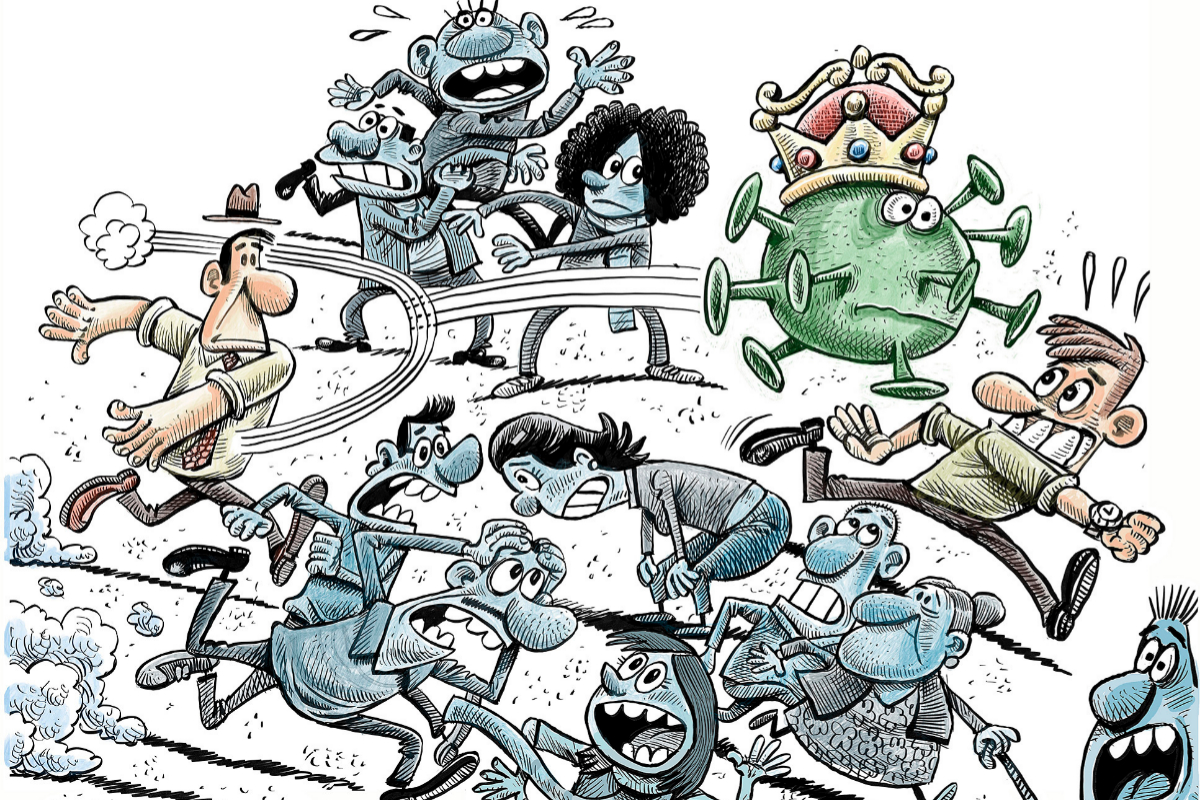- Direct: latest news of the coronavirus
- Graph: Coronavirus map by autonomy
- Covid-19: coronavirus symptoms, treatment and how to avoid contagion
In the last few weeks there is no one who has not heard of him. In cafes, in WhatsApp groups, at work or in the market. And it seems that the coronavirus has arrived to stay among us.
Who?
The first thing we must be clear about every time we read or hear something about it is that it is a new virus, and that is why the information that reaches us can be changeable. And that change is not bad, on the contrary, it means that we know something that until then we did not know . It is true that coronaviruses have been with us for a long time, infecting here and there, but this one is new.
Where do I look for information?
Both the fact that we are facing something little known, such as his pandemic surname, is something that ordinary mortals jump into the chair and, at the very least, start looking for more information on the internet. At this point, it should be clarified that this surname does not mean that it will end half of the world population, far from it. That it is classified as a pandemic only means that it is something that is transmitted in a sustained way and covering a very large area of the planet, as the influenza virus or the human immunodeficiency virus have been doing for years.
How is it infecting people?
After the appropriate introductions, it is time to explain how it works, how it manages to jump from person to person in such an effective way until it has already traveled more than half the world. Because although it is new, we have already discovered how it works and that will be of great help to us when trying to stop it.
Why is it called that?
If it is called coronavirus it is because of what they are thinking, because it wears a crown. In reality, they are a series of spicules, little pricks that are scientifically known as peak protein , and that give it that characteristic appearance.
But this royalty-free virus has a problem: it needs to infect people in order to live. If it did not succeed, it would become extinct, since inside it does not have the essential material to be able to multiply: DNA. But you know where you can find it ... and it's in the nucleus of our cells, so you need to get there to multiply and survive.
How does it attack?
When this virus, which the medical and scientific community has called SARS-CoV-2, manages to enter our respiratory system and approach a cell, these spicules act as a master key that will easily open the door of entry to any cell in our respiratory system. From the nostrils to the smallest alveolus of the lung, through the cells of the trachea or the bronchi, no lock will resist this coronavirus. That cell lock is nothing more than a tiny bulge on its T-shaped wall, known as the ACE2 protein, which is unable to recognize the virus key as harmful and therefore allows the door to open, giving I pass the virus inside. Once inside, the coronavirus is done with control. It releases all of its RNA, instructs the nucleus to stop everything it is doing and start manufacturing more new RNA for it. That is, to create more copies of SARS-CoV-2.
Once it has multiplied and has weakened the cell, it opens the door again but this time to go out with all its copies and continue infecting new respiratory cells with the same procedure ... until someone stops it.
How can you stop?
That "someone" in charge of stopping his feet will be our own immune system, our defenses. But as we already know, not all people have their defenses in good condition to face it. Here comes the medical and scientific community. If we could block that lock on the cell wall, get the respiratory cells to not allow the coronavirus master key to open its doors, then the virus couldn't multiply. And that is something that everything seems to indicate that we could get in a not very long period of time with a drug, an antiviral that we would give to already infected people to stop the multiplication of this virus that, as I say, seems to be here to stay.
According to the criteria of The Trust Project
Know more- Science and health
- Coronavirus
- Covid 19
- Respiratory diseases
- Infectious diseases
What do we know about how the coronavirus affects pregnant women?
A 91-year-old man, third deceased by coronavirus in the Community of Madrid
Health WHO officially declares coronavirus as a pandemic

